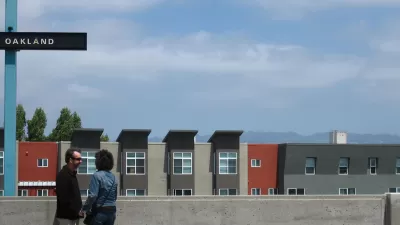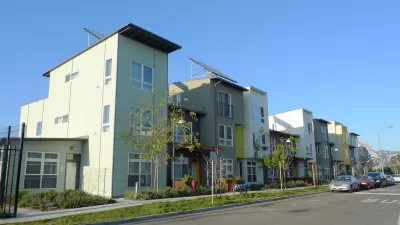California State Senator Scott Wiener has established himself as one of the most ardent supporters of pro-housing policy in the state. His announcement this morning continued the theme.

[Updated January 4, 2018] California State Senator Scott Wiener took to Twitter and a blog post on Medium this morning to announce a new package of bills that puts forward a "housing-first" policy. According to Senator Wiener, his three proposed bills would:
- Mandate denser and taller zoning near transit.
- Create a more data-driven and less political Regional Housing Needs Assessment process (RHNA provides local communities with numerical housing goals) and require communities to address past RHNA shortfalls.
- Make it easier to build farmworker housing while maintaining strong worker protections.
The density and building height mandates referenced in the first point are included in SB 827. Senator Wiener's post criticizes the ubiquity of transit stations surrounded by single-family zoning, and states his cause: " Transit-rich areas are *exactly* where we should be putting dense housing. We must build more housing near transit so that we can reduce reliance on cars and so that more people can access the benefits of transit."
As for how the bill would achieve those goals, Senator Wiener writes:
Under SB 827, parcels within a half-mile of high-connectivity transit hub — like BART, Muni, Caltrain, and LA Metro stations — will be required to have no density maximums (such as single family home mandates), no parking minimums, and a minimum height limit of between 45 and 85 feet, depending on various factors, such as whether the parcel is on a larger corridor and whether it is immediately adjacent to the station. A local ordinance can increase that height but not go below it.
The reform of the Regional Housing Needs Assessment process is dealt with by SB 828, which calls for a "clearer, fairer, more data-driven, and more equitable process." According to Senator Wiener, "SB 828 also requires communities to begin making up for past RHNA deficits." It's not the first time Senator Wiener's has authored legislation that attempted to curtail RHNA abuses—last year's SB 35 required by-right approvals of affordable housing cities not meeting their RHNA goals. Marin County, a wealthy enclave in the North Bay Area made national news for legislating their way out of housing quotas last year. In July 2017, Liam Dillon of the Los Angeles Times provided an in-depth overview of everything that's wrong with California's RHNA process.
As the final piece of Senator Wiener's proposed housing policy package, SB 829 approaches issues of rural housing, creating "a by-right process where farm owners and operators can dedicate agricultural land for employee housing."
Astute observers of California housing policy legislation will recall that previous efforts to remove parking requirements from transit-adjacent neighborhoods met their demise due to opposition from the League of California Cities and other advocates for local control. This new package of bills, and SB 827 specifically, goes far beyond previous efforts. The local control versus state control debate that will play out around this package will be a political hot button to watch in 2018.
FULL STORY: California Needs a Housing-First Agenda: My 2018 Housing Package

Alabama: Trump Terminates Settlements for Black Communities Harmed By Raw Sewage
Trump deemed the landmark civil rights agreement “illegal DEI and environmental justice policy.”

Study: Maui’s Plan to Convert Vacation Rentals to Long-Term Housing Could Cause Nearly $1 Billion Economic Loss
The plan would reduce visitor accommodation by 25% resulting in 1,900 jobs lost.

Planetizen Federal Action Tracker
A weekly monitor of how Trump’s orders and actions are impacting planners and planning in America.

Waymo Gets Permission to Map SF’s Market Street
If allowed to operate on the traffic-restricted street, Waymo’s autonomous taxis would have a leg up over ride-hailing competitors — and counter the city’s efforts to grow bike and pedestrian on the thoroughfare.

Parklet Symposium Highlights the Success of Shared Spaces
Parklets got a boost during the Covid-19 pandemic, when the concept was translated to outdoor dining programs that offered restaurants a lifeline during the shutdown.

Federal Homelessness Agency Places Entire Staff on Leave
The U.S. Interagency Council on Homelessness is the only federal agency dedicated to preventing and ending homelessness.
Urban Design for Planners 1: Software Tools
This six-course series explores essential urban design concepts using open source software and equips planners with the tools they need to participate fully in the urban design process.
Planning for Universal Design
Learn the tools for implementing Universal Design in planning regulations.
Caltrans
Smith Gee Studio
Institute for Housing and Urban Development Studies (IHS)
City of Grandview
Harvard GSD Executive Education
Toledo-Lucas County Plan Commissions
Salt Lake City
NYU Wagner Graduate School of Public Service





























